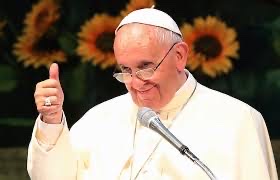Can a Roman Catholic attend an Orthodox Mass and have it fulfill his Sunday Obligation?
Can a Catholic ever attend an Orthodox Liturgy instead of Sunday Mass, and could Catholics receive the Eucharist there as well? Let’s investigate….
First, let’s check Canon law. From the 1983 Code:
Can. 1248 §1. A person who assists at a Mass celebrated anywhere in a Catholic rite either on the feast day itself or in the evening of the preceding day satisfies the obligation of participating in the Mass.
So now the question is, “Do the liturgical celebrations on orthodox parishes constitute “Catholic rites?”
No, Orthodox liturgies are not a "Catholic rite"
But, even though an Orthodox liturgy is Non-catholic, the Catholic Church does recognize the VALIDITY of the sacraments administered to the Orthodox faithful by Orthodox clerics, because it holds that the Orthodox clergy, unlike the clergy of various protestant denominations, are validly ordained priests. In case you don’t know, here are the definitions of valid and licit:
1 - VALID - When a sacrament has proper Matter and Form (in the case of the Eucharist, unleavened bread and the words of consecrated as specified by the Church respectively). The Eucharist IS consecrated
2 - INVALID - Improper Matter and Form. The Eucharist is NOT consecrated.
3 - LICIT - A sacrament celebrated under the structures that Holy Mother Church defines. Lawful. For example, the priests of the SSPX celebrate valid Masses, but they are Illicit (unlawful) because they are doing so without the approval of the competent authority, who in most cases is the local diocesan bishop.
The Orthodox Churches (such as the Greek, Russian, and Romanian Orthodox, to name a few) are officially in a state of schism with the Catholic Church (Code of Canon Law canon 751), because for nearly 1,000 years, the Orthodox have refused to recognize the primacy of the Bishop of Rome over the universal Church.
So, when canon 1248.1 mentions the need for Catholics to attend Sunday Mass anywhere in a Catholic rite, this phrase is NOT intended to include Sunday liturgy at an Orthodox parish church. Yes, the Catholic Church holds that such a liturgical celebration is really a valid Mass; but it isn’t a Catholic Mass. Consequently, Catholic are not permitted to attend an Orthodox Church on Sunday instead of going to a Catholic one, as this DOES NOT satisfy the regular obligation.
It may sound strange, but just because a Mass is VALID, that doesn’t necessarily mean Catholics should attend it. Imagine, for example, that a Catholic priest who has been laicized celebrates a Mass. As one who has been validly ordained, such a priest ALWAYS retains the power to say Mass validly. But if he has returned to the lay state, his hierarchical superiors have forbade him to do so. Any Mass he were to celebrate would therefore be ILLICIT, and the Catholic faithful definitely should avoid it.
Similarly, around the world there are clergy who may have validly received the sacrament of Holy Orders, but for whatever reason are in some irregular canonical situation — the clergy of the Society of St. Pius X come to mind. Again, the priests of the SSPX are validly ordained and thus always possess the sacramental power to celebrate VALID Masses, but the faithful should not attend them because they are ILLICIT, and such attendance does not fulfill one’s Sunday obligation.
So does this mean that Catholics can never attend Orthodox liturgy and have it “count” as Sunday Mass, and can never receive any of the sacraments in an Orthodox parish church? Not so fast. There are specific, out-of-the-ordinary situations in which this may take place, and these are addressed in canon 844.2:
Canon 844 §2. Whenever necessity requires it or true spiritual advantage suggests it, and provided that danger of error or of indifferentism is avoided, the Christian faithful for whom it is physically or morally impossible to approach a Catholic minister are permitted to receive the sacraments of penance, Eucharist, and anointing of the sick from non-Catholic ministers in whose Churches these sacraments are valid.
So, a Catholic may lawfully receive the sacraments of penance, the Eucharist, and anointing of the sick from non-Catholic ministers in whose Churches the sacraments are valid if:
1 - It is impossible for the Catholic to approach a Catholic cleric for these sacraments.
2 - The danger of error or indifferentism is avoided, and
3 - There as a genuine necessity or spiriitual advantage to be gained from it.
One important thing to remember is that even if we Catholics are permitted to receive certain sacraments from the Orthodox in specific circumstances, it’s wrong to assume that they are automatically willing to administer them to us! It’s critical not to lose sight of the two-way nature of this ecumenical scenario. Some Orthodox Churches may be fine with Catholics receiving the sacraments from their clergy; others may not. Regardless, Catholics do not have a right to demand spiritual assistance from Orthodox priests, who obviously have dedicated their lives to ministering to the orthodox faithful — not to Catholics who come to them in a jam.
In Conclusion
Joining an Orthodox parish means walking away from the Catholic Church and entering into a state of schism. Catholics can certainly attend their liturgy, but it does NOT satisfy one’s Sunday obligation, except perhaps in extremely unusual circumstances — and receiving the sacraments there would require circumstances even rarer still.


Comments
Post a Comment